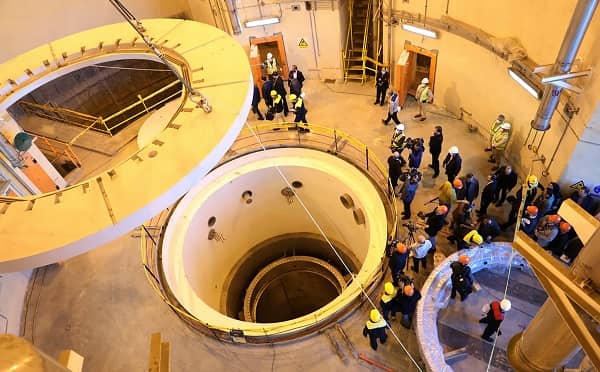The International Atomic Energy Agency director-general, Rafael Grossi, stated that Iran needs to reveal all prior nuclear work if they want to save the Joint Comprehensive Plan of Action (JCPOA) or the 2015 Iran nuclear deal, as it is more commonly known.
The JCPOA was designed to halt Iran’s nuclear ambitions while drawing a line under what had come before it, but evidence has been found that suggest Iran had secret sites and continued their activities. This came from the IAEA, the Iranian Resistance, and the regime itself.
A few weeks ago, the National Council of Resistance of Iran(NCRI), which has been exposing Iran’s nuclear activities since 2002, held a press conference to share details about one of the two newly-identified nuclear sites.
During the conference, the NCRI compared the new information on the Abadeh site to that of the Parchin military base, which was suspected to be a nuclear site in 2012, but the IAEA didn’t access it until 2017. They said that both sites were sanitized, with buildings destroyed and the soil replaced, even though not all evidence of nuclear activity could be removed. Both times, Iran blocked the IAEA from accessing the site for many months because of the lack of JCPOA provisions.
Since the US withdrew from the deal in 2018, Europe has wanted to save the agreement no matter the cost, even as Iran retaliated by openly stopping compliance with the deal and revoking the IAEA’s limited ability to inspection.
The NCRI wrote: “Neither Europe nor the US can allow themselves to be blackmailed in this fashion. The nations of Europe must thoroughly revise their approach to the issue in the wake of the IAEA’s latest findings regarding undeclared nuclear sites. If Tehran is not subjected to additional pressure, the mullahs will no doubt conclude that both their deception and their threats have paid off and will continue to do so.”
They advised that threats from Iran over their nuclear program have become blatant, citing Intelligence Minister Mahmoud Alavi as saying that if Iran is “pushed” it cannot be held responsible for the consequences. They further quoted Atomic Energy Organization of Iran head Ali Akbar Salehi as bragging about tricking the other JCPOA signatories into thinking that Iran was complying with the deal.
The NCRI wrote: “If the JCPOA had represented adequate pressure over this issue, such a rapid resumption of nuclear activity should never have been possible. But of course, no amount of pressure could be adequate if it did not result in the regime adopting full transparency about the scale and detail of its prior nuclear activities or their military dimensions.”
